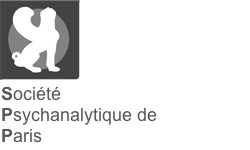|
Résumé :
|
This paper lays out a formulation of the psychoanalytical contribution to linguistic metaphor theory. The author's main argument is that psychoanalysis can help enrich and shed light on linguistic metaphor theories, since these have focused on the cognitive aspect, to the exclusion of the role played by affect. Based on the tight link between metaphor and symbol – both configurations of figurative language – the author shall apply ideas sourced from some of the key psychoanalytic symbolization theories, focusing in particular on Klein, Winnicott, and Ogden. The course of exploration will serve to trace the unconscious emotional aspects that participate in the metaphor's mechanism, just as they participate in the symbol's workings. The study leads to the main conclusion that the intersubjective transitional space is of substantial importance to metaphor's constitution, particularly in regard to novel metaphors. Expanding the understanding of metaphor's modus operandi has important implications in conceptual clarification and for an in‐depth analytical work, and is of immense significance when it comes to analytical work with patients who suffer impairment of their metaphoric ability.
|





